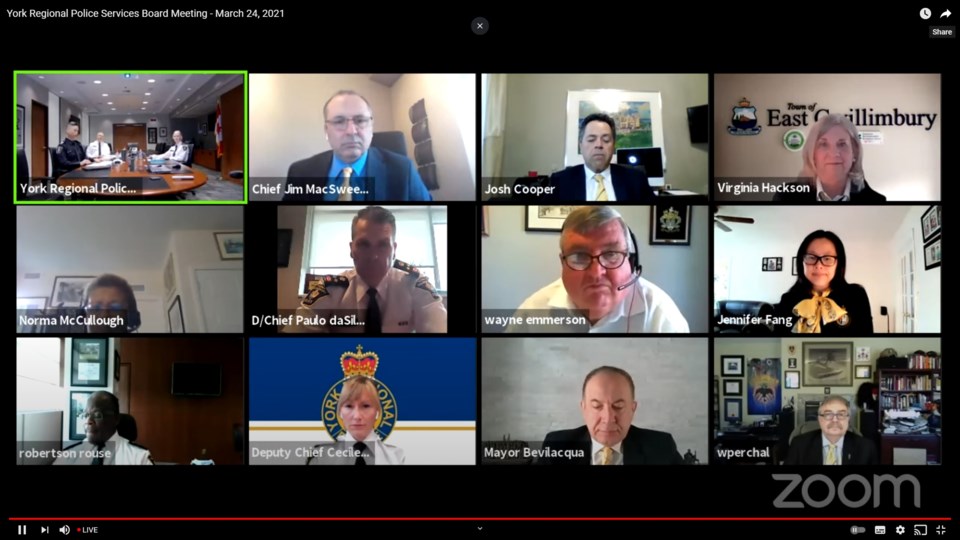During the pandemic in 2020, there were 295 reported incidents of human trafficking in York Region, 78 of which led to criminal charges after an investigation.
That is a dramatic increase from just a few years ago. In 2017, there were only 20 reported incidents of human trafficking, none of which led to criminal charges.
What caused that to change, according to Det. Ricky Ho of the York Regional Police special victims unit, was an effort to train more officers on recognizing potential human trafficking situations when they see them. So far, 80 per cent of officers have received that recognition training, and the force also has intelligence gathering and tools such as a phone app to help victims escape.
"Human trafficking victims often come into contact with police officers. That initial contact with officers and the interaction will often determine whether they will seek help from police and whether offenders are held accountable," Ho told members of the police services board at their monthly meeting Wednesday, March 24.
The recognition training is just one of many changes as to how York Regional Police handles human trafficking cases after the federal government overhauled prostitution laws in 2014.
Under the revised laws, sex workers cannot be charged with offering or selling sex for money. Only the acts of buying sex, pimping or otherwise trafficking people are crimes.
Ho explained that this shift had led the police department to adopt a "victim-centric approach," which, among other things, tries to convince trafficking victims to trust the system enough to ask for help to escape. Something that is still not an easy sell.
"One-third of human trafficking victims are still more unlikely to report crimes or abuse to authorities than other groups. It is due to their perception of not being heard or treated fairly by police, and it causes sex workers to underreport violence," said Ho.
"Increasingly, traffickers are targeting women and girls in large urban centres and, despite our commitment, police are having difficulty getting cooperation due to some trust barriers."
The police department has several different initiatives to try to break down those barriers, as well as an app that sex workers can discreetly install on their phones.
"The app is designed to be installed by people working in the sex trade who want to exit. The app was also designed for families who want to help someone exit the sex trade. It is also designed so that traffickers are not alerted to its true purpose. Sex workers access it discreetly with a provided password," said Ho.
Ho also said the police are working with bylaw officers, starting in Markham, about their approach when dealing with sex work operations, such as loading people down with fines is a way to continue to trap people in their situations.
Newmarket is currently considering a new bylaw that could crackdown on erotic massage operations in town, depending on what options council decides to go with. Human trafficking advocates have warned that rules that are too prohibitive could force more sex work underground, making it harder to reach trafficking victims.

